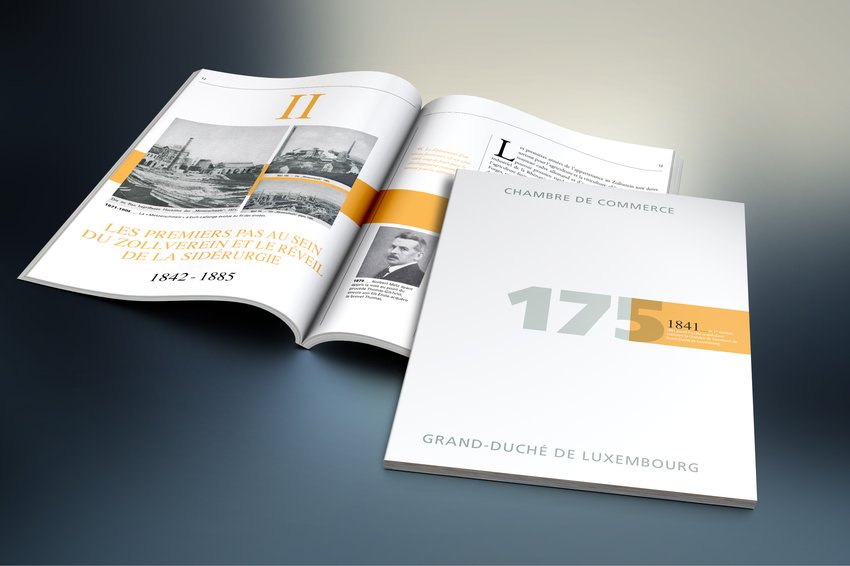
Chapters
A difficult start in a turbulent historical context
The creation of the Chamber of Commerce on 1 October 1841 took place in a very turbulent historical context. Only two years after the independence of the Grand Duchy, enshrined in the Treaty of London of 28 April 1839, the country was already at a crossroads and had to decide on its political and economic future. Should it join the German customs union (Zollverein) or should it negotiate an arrangement with Belgium while seeking an economic union with the Netherlands? The question divided the country and was the test of fire for the 21 industrialists, merchants and bankers who made up the young Chamber of Commerce. The Chamber was established by King Grand Duke William II, a young and enlightened prince, who wanted to surround himself with wise advisors.
The first President of the Chamber of Commerce, Ferdinand Pescatore, took a clear stand by leading an impassioned campaign for membership of the Zollverein. After lengthy consultations and much prevarication, William II finally rallied to his cause and Luxembourg opted for membership, but not without securing the freedom to continue exporting its iron ore to Belgium. This was the first chapter in a long series of opening up and economic development for the country.
This important episode in the early history of the Chamber of Commerce is quite characteristic of its later action, since it shows not only to what extent the oldest of the professional chambers has been - since its very beginnings - intimately linked to the strategic choices in terms of the country's economic development, but it also shows how important it is for the government in place to have an interlocutor who is representative of the country's economic forces. An interlocutor who can claim to be truly representative and who can - beyond all sectoral or partisan positions - speak out in the general economic interest of companies and the economy as a whole
A reliable partner for businesses
Throughout its history, the Chamber of Commerce has never failed in its mission to articulate and defend the interests of all its members. Today, it is the official spokesperson for some 100,000 companies representing no less than 75% of total salaried employment, 80% of GDP and even more in exports and services. The Chamber of Commerce therefore defends the interests of those who contribute every day to the creation of wealth in our country. It accomplishes this mission with all the more fervour as competitive pressure has severely increased in a globalised and highly interconnected world. It is for this reason that the Chamber of Commerce maintains close links with the Government, in general, and with the Ministry of the Economy, in particular, to create with all the economic actors the conditions necessary for innovation, sustainable development and the success of companies.
It also supports by all means at its disposal the deployment of a true culture of entrepreneurship, given that entrepreneurship is a necessary condition for the advancement and prosperity of any country.
The role and missions of the Chamber of Commerce were first confirmed by the law of 4 April 1924 on the creation of elective professional chambers. The legal framework governing the Chamber of Commerce was reformed and modernised by the law of 26 October 2010 on the reorganisation of the Chamber of Commerce.
On 30 September 2016, the Chamber of Commerce celebrated its 175th anniversary. On this occasion, a film was shown in which many personalities from the economic and political world shared with the guests their views on the history, the missions, the action and the role played by the Chamber of Commerce in the socio-economic life of the country.




